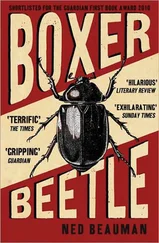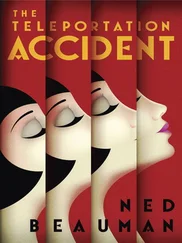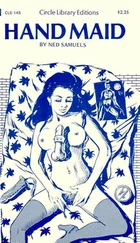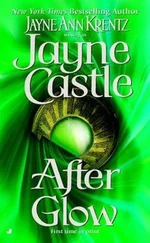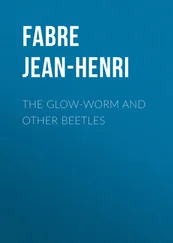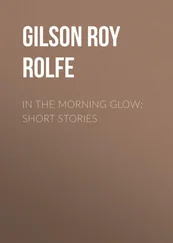Raf is friendly with almost all the DJs at Myth, so he doesn’t bother to ask permission before he tugs Rose down the corridor and pushes through the door into the cramped studio. The curtains are drawn, but you can see the bump in the fabric where the link box leans up against the window like a cat pressing its nose to the glass. On the wall is a whiteboard with the week’s schedule; in the corner, for reasons Raf has never discovered, is a pub fruit machine; and at the far end of the room, where the turntables and tape decks and microphones and mixer and computer knot their roots under the desk, Raf expects to see Barky or Jonk or one of the other DJs who sometimes play Saturday afternoons — but instead, glaring back at him, there are two men he’s never seen before. He’s not quite sure what ethnicity they are, but they remind him of the girl from the laundrette: maybe they’re Thai, if she was half Thai. In the studio there’s always a radio tuned at low volume to Myth FM so the DJs can hear straight away if there’s a problem with the signal, and what this pair is playing is some sort of synthesiser torch song with a shrill woman singing in a language Raf doesn’t recognise. He doesn’t know much about foreign pop music, so all he can say to himself is that it reminds him of something you might hear while eating noodles in a restaurant. This is not what Myth FM usually broadcasts. The song comes to a tearful end, and one of the men turns back to the microphone to talk in what sounds like the same language as the vocals. Raf steps back out of the studio and shuts the door.
‘Who are those guys?’ he says to Dickson.
‘They’re doing an afternoon community programme.’
‘Really? Which “community” is that?’
But Dickson hands him his wage for the week without a reply. Raf gets paid more than he probably deserves for walking Rose, but it’s still not enough to live on, so he also does some freelance graphics programming. He’s good with computers and he always had a knack for maths, so he was able to train himself out of textbooks, but he’s not by any means a born coder and with nothing much on his CV he can still only get boring, repetitive work. At the moment, he’s helping out a Polish company with lighting models for a program that an Australian property developer has commissioned to give online tours of unbuilt houses.
In the nineties, you didn’t have to worry so much about virtual light — it was always just flat and even, like in southern California — but now that it’s technologically possible to render it with a degree of realism, lighting is more important than almost anything else. Raf finds it amusing that a lot of the last generation of video-game programmers must have gone into the industry expecting that maybe they’d specialise in rifle ballistics or motorcycle handling and instead found themselves becoming as intimate with chiaroscuro as the most studious Florentine portraitist’s apprentice. And sometimes, up on the roof after a day at his computer, looking down at the Myth transmitter, he thinks how strange it is that light and radio are both electromagnetic waves, differing only in relative size — light is a chihuahua, maybe, and radio is a Great Dane (and infra-red is a Staffie like Rose) but somehow they’re all still the same species.
3.21 p.m.
In Isaac’s spare bedroom live three Japanese fashion students who answered an ad he put on a listings website. There’s only a double bed in there, and it doesn’t look as if there would be space for three girls, even these slender ones, but that’s not a problem because like the Iranian corner shop on Raf’s road they are a twenty-four-hour operation. Every single time Raf visits Isaac’s flat, day or night, without fail, one is asleep, one is awake, and one is absent; when he passes their bedroom he half expects to see a whiteboard on the wall like at Myth, dividing their shifts. He’s never quite memorised their names, and he suspects Isaac hasn’t either. Today, the girl painting her nails at the table by the front door is wearing combat boots and a dress that looks like an umbrella blown inside out, and the girl dozing on the futon is wearing gold plimsolls and a man’s tuxedo jacket about five sizes too big for her. As always, they are magnificent. Stooping to unclip Rose’s leash from her collar, Raf sees a huge bouquet of tulips resting in the kitchen sink.
‘Who’s that from?’
‘By the time we left the laundrette the second time, the flower market had started,’ says Isaac. ‘Those kids from the dryer insisted on buying me those. They said I was beautiful. Hello, dog! Hello! Hello! Hello! Hello! Hello! Hello! Hello!’
‘But you and Barky went home before I did.’
‘We went back later on. We felt better.’
‘Why didn’t you call me?’
‘Your phone was off.’
Last night, before they ate that first portion of wontons, Isaac told Raf that he had something exciting to show him in Walworth, but he wouldn’t expand on the oxymoron. After the dog and her friend have sated each other’s tactility, Raf puts the lead back on Rose and they take her downstairs to Isaac’s car so they can drop her off at home on their way. As usual she resists the back seat as if it were a vertical plummet. Someone’s windscreen must have got knocked through outside Isaac’s block of flats, because in the gutter there are diamonds of safety glass with which this morning’s rain has mingled an alluvium of damp white blossom and a few fronds of synthetic wig hair caught on a chicken bone, like the shattered remains of a tribal fetish.
‘I was at Myth earlier,’ says Raf as Isaac starts the car. ‘There’s something weird going on.’
‘Yeah. I got a call from Jonk about it.’
‘What did he say?’
‘You can’t believe anything that fucker tells you. Do you remember when he said he met that guy who could shoot electricity out of his fingers?’
‘Yeah, but what did he say?’
Late on Wednesday night, Isaac explains, Jonk apparently left Myth FM after his two-hour slot, wandered across the road to the playground, and sat down to smoke a spliff on one of those plastic sheep they have on wobbly springs for the kids. Through the trees, he could see Theo walking down the street, and he was about to shout a greeting when a van pulled up right beside Theo. It was just a grimy white builder’s van, ‘no tools left in this vehicle overnight’, but the two men who jumped out of the back wore some kind of hi-tech goggles and were dressed all in black. Theo, taken aback, said something Jonk couldn’t hear, and then they pulled him inside the van and slammed the rear doors. The van drove off, and the strangest thing, Jonk claimed, was that somehow the engine didn’t make any noise at all: apart from the soft crepitation of tyres on the asphalt, it moved in total silence, headlights sweeping across the playground like the blank eyes of a wraith.
3.51 p.m.
They park outside a salvage yard with a sign that says ‘wholesale ironmongers’, radiators and baths and sinks piled in their rusty dozens behind the fence like an old house multiplied in a broken mirror. The next building down on the left is a medium-sized warehouse built from grey steel panels with a pitched roof and sliding garage doors at the front, generally looking as if the most exciting thing it could possibly hold is cardboard boxes full of spare parts for machines that make more cardboard boxes. Isaac leads him round to the back of the warehouse, where two green wheelie bins lean their open lids against a brick wall, empty but for a can of Coke and some wisps of cling film. A padlock that must have been snapped with bolt cutters lies on the ground beside the back door.
Inside the warehouse it’s dark so Isaac takes out a torch and shines it around. In the corner there’s a row of four portable toilets, and at the far end there’s a metal shelving unit, but apart from that the building is vacant. Raf sees tyre marks on the ground. ‘What are we doing here?’ he says.
Читать дальше

